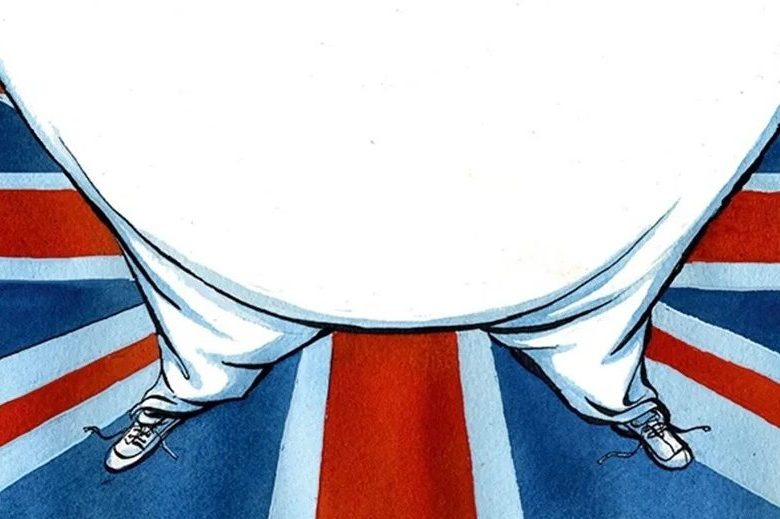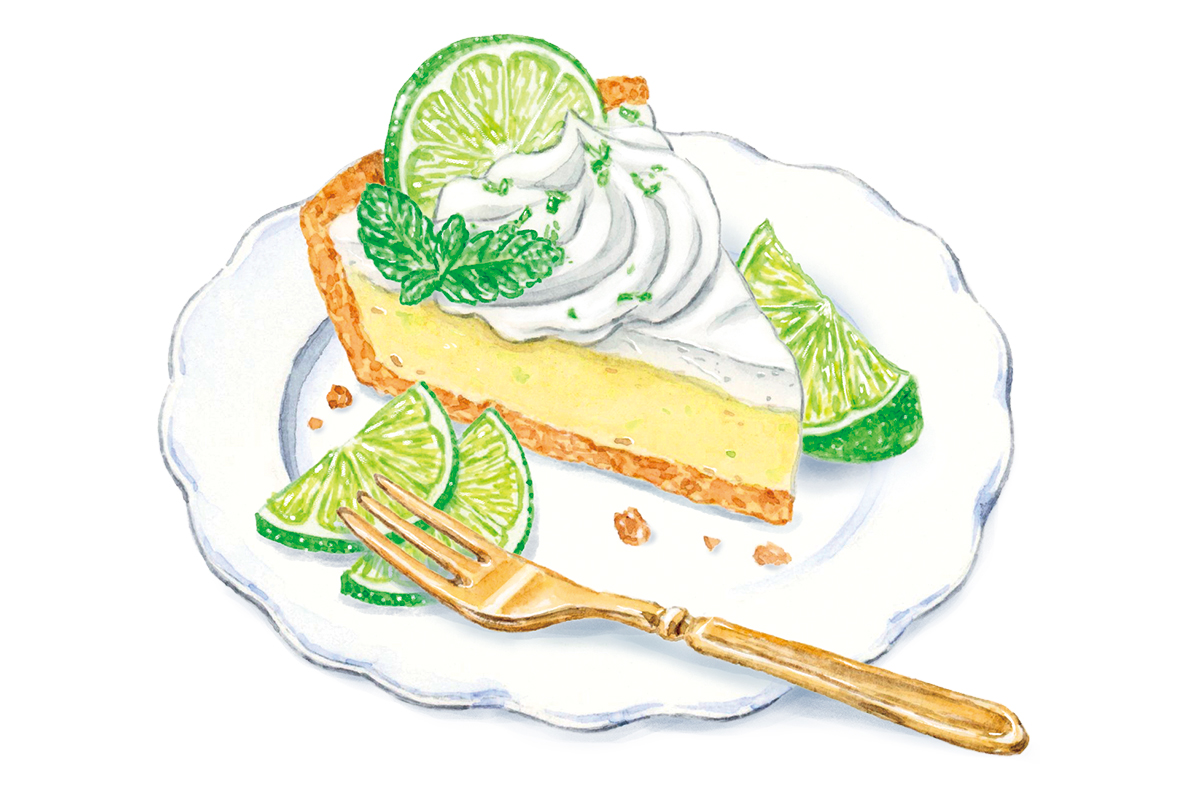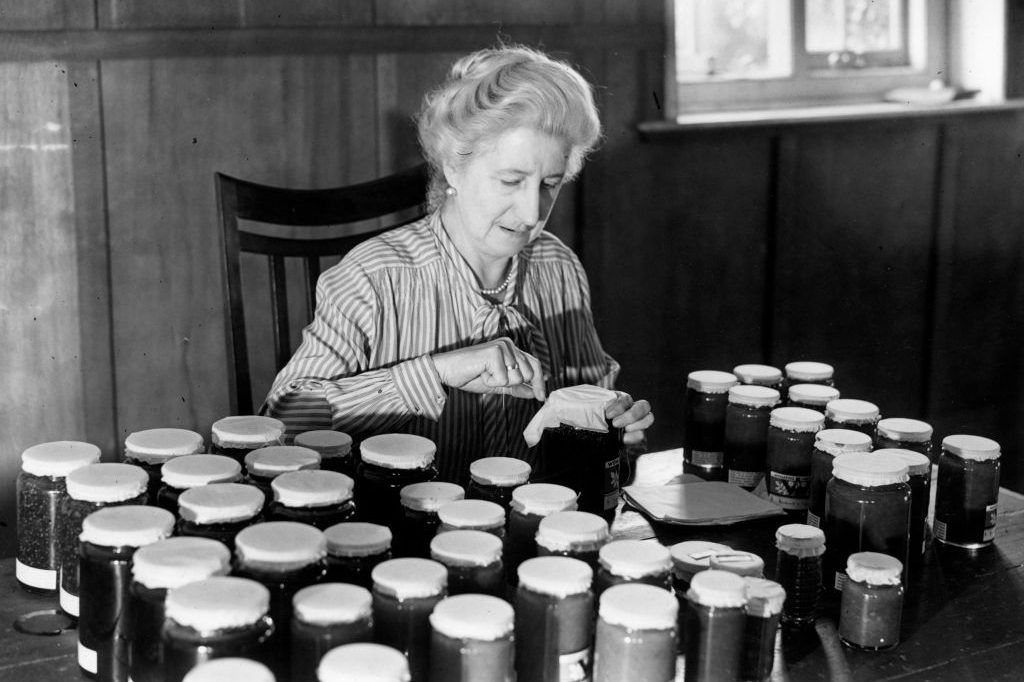It’s been brought to my attention that it is no longer done to describe a person as fat. Better, apparently, to say that they are “living with obesity.”
This weasel construction makes obesity sound like a malevolent squatter who refuses to be evicted. Or like a bit of genetic bad luck, such as “living with ginger eyelashes.” It’s someone else’s fault.
The western world has undoubtedly lost the plot with regard to diet, but before I say more, full disclosure: I am, according to the flawed metrics of BMI, obese. I reject the label, not because I’m in denial but because an index that ignores age, sex and muscle and bone mass isn’t really worth a light. I’ll stick with the Tightening Waistband Indicator. In fact, I wear the same dress size as the late and glorious Marilyn Monroe, though admittedly with a different distribution of flesh. Mine has moved south, but then so might hers have done had she lived longer.
Like hemlines, approved body size is subject to change. Catwalk models, despite concerns about damage to their health, aim to be skeletal. That’s the deal. Live on celery sticks or go home. It’s a short-term career choice with long-term implications, but a choice nonetheless.
Looking through the other end of the telescope, there is the Body Positive clan, who rejoice in their billows of flesh. Celebrate is a verb they use a lot. “This is me,” they say. “I love my body. Do likewise or push off.” When warned that they’ll become burdens on our tottering health service, they counter with two arguments. 1) That the jury is still out on the health risks of obesity. Well, yes, perhaps in the same sense that the jury is still out on the flatness of the Earth. 2) That if their weight truly condemns them to an early death, then at least they won’t be hanging around into their nineties, selfishly hovering up precious health resources. Thus they cover their considerable bases.
Most fat people, though, are not body positive zealots. Most long to shed weight, swiftly and without undue deprivation, to reach the sunlit uplands of svelteness and stay there, but they keep failing. Now they have a cop-out. They’re not lacking in perseverance or self-restraint, they’re living with obesity and it just won’t go away.
I’m not unsympathetic. Our relationship with food is insane. We have housing estates that are food deserts, with nowhere to buy affordable, nutritious ingredients. We have adequately appointed kitchens where no one can be arsed to cook. And we have fast food everywhere.
Battling through the crowds at London’s Waterloo station last week I was struck by the ubiquitous smell of food. I wasn’t even hungry, but I can’t swear that if I hadn’t been rushing for a train I wouldn’t have been coaxed. Sixty years ago you’d have been lucky to find a rock bun and a cup of stewed tea at any station, so there was certainly room for improvement. Now, for those who cannot resist a glazed doughnut or three, there is temptation at every turn.
I know someone who manages a call center, employing people for the minimum wage. She tells me that between the hours of twelve and two there is a constant stream of lunch deliveries ordered in by her staff. You might think that for someone earning less than $15 an hour, dropping more than $10 a day on a chicken combo plus a can of soda doesn’t make sense, when you could get up ten minutes earlier and make a cheese sandwich. That too would be a choice. But no. This is how obesity gets its sneaky foot in the door.
What’s the answer? I don’t know, but I’m pretty sure adopting expressions like “living with obesity” doesn’t help. It dilutes any sense of personal responsibility. “A big boy did it and ran away.”
Let me not judge my brother is a noble rule to live by. I find I can just about manage it for the forty days of Lent. But how about judging ourselves? Or having the bejaysus scared out of us?
I remember the brutal words delivered to my then forty-five-year-old father by our family doctor: “You are digging your grave with your teeth.”!Missing the cheap cigs he’d enjoyed in the navy, and being compensated by my mother’s cooking — she was a feeder if ever there was one — my father’s weight had ballooned.
Terrified by the doctor’s warning, he began the long slog of permanent weight loss the next day, overcoming the embarrassment of picking at girlie salads while his building trade mates lunched on man-sized sandwiches.
He refused, you might say, to live with obesity.
This article was originally published in The Spectator’s UK magazine. Subscribe to the World edition here.


























Leave a Reply